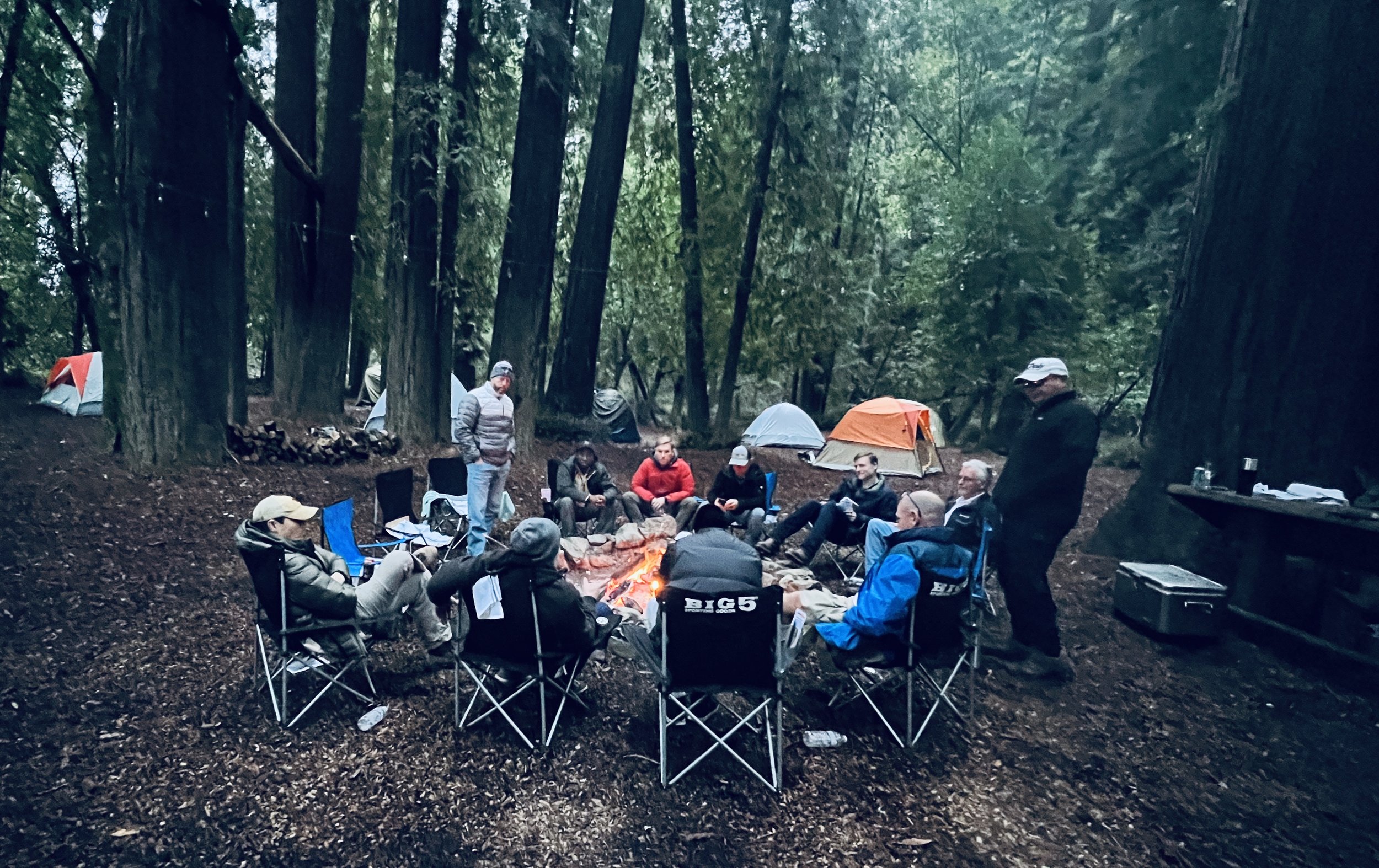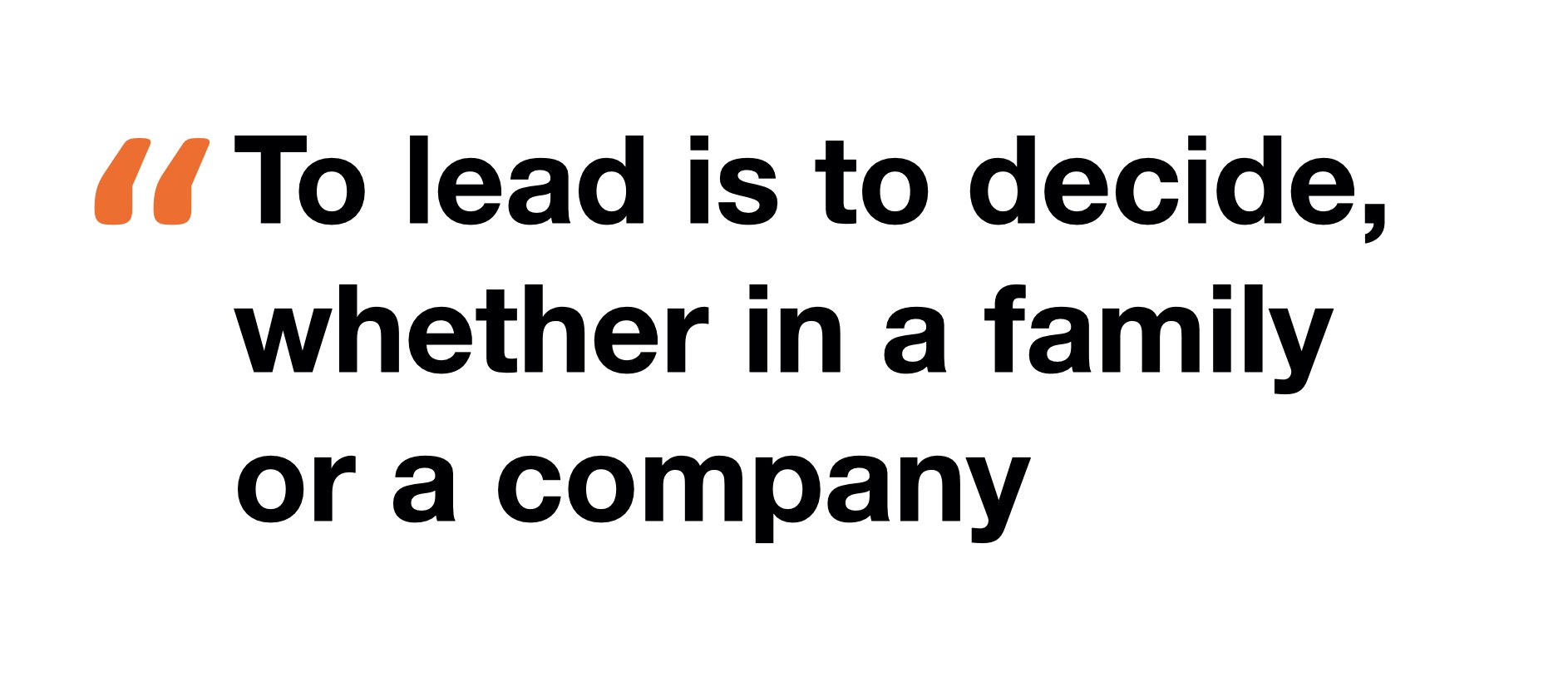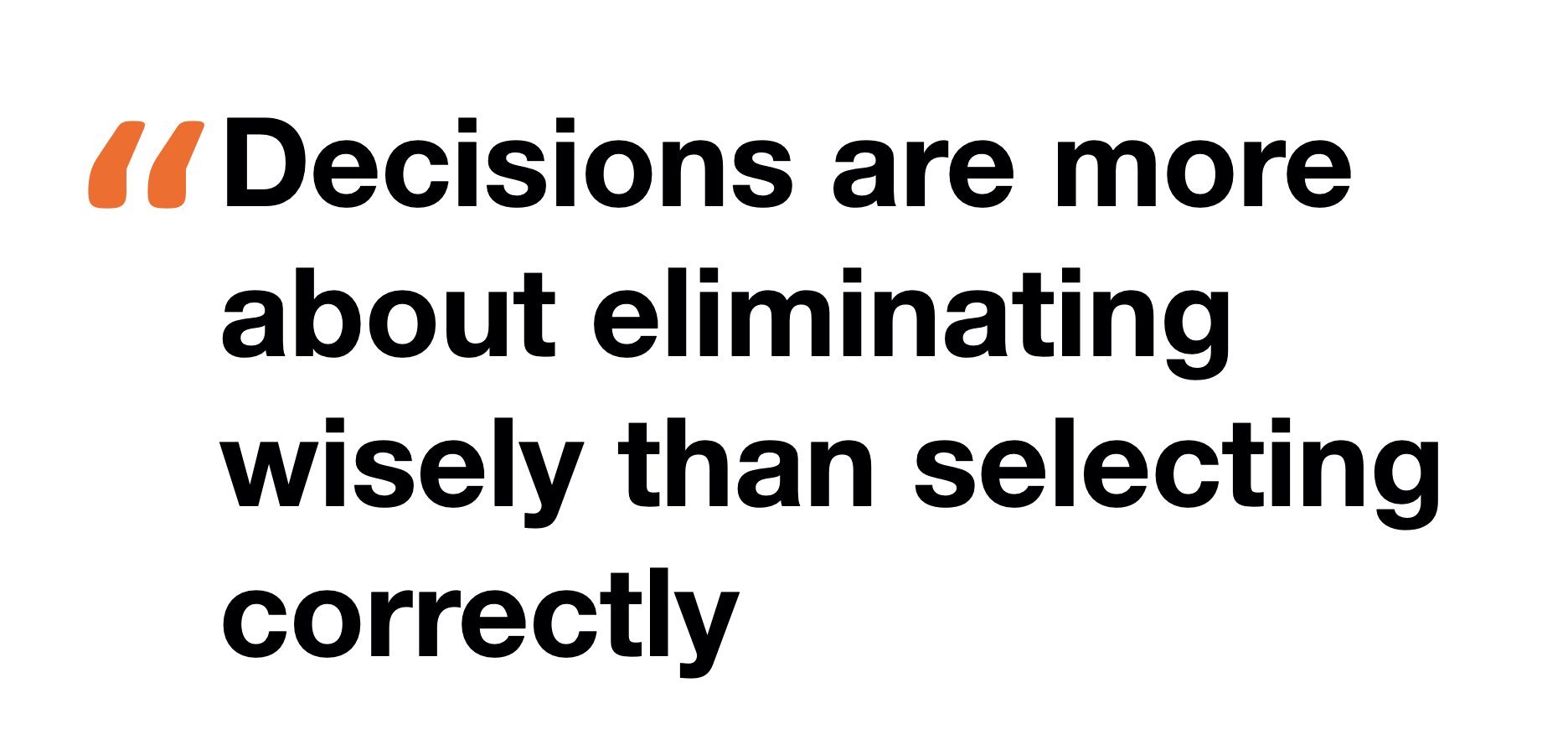Decide
“It does not take much strength to do things, but it requires great strength to decide on what to do.” Elbert Hubbard
Stanislav Petrov is not a name that often comes up in discussions of individuals who have impacted the course of history. But perhaps it should when there’s a documentary about him titled The Man Who Saved the World.
On September 26, 1983, Lieutenant Colonel Petrov was the duty officer at the command center for the Soviet Union’s nuclear early-warning system when it detected an incoming missile strike from the United States. Protocol dictated that any warnings be immediately reported up the chain of command, and many historians believe—given Soviet policy, personnel, and political events at the time—that if a warning were to be reported, military leadership would have quickly ordered a retaliatory strike.
But Petrov did not report it. And, it turned out, the U.S. had not launched missiles.
His decision—a decision not to act—had consequences, in that case positive ones: a potentially devastating mistake was averted and the system was improved.
And while we may never find ourselves playing a central role in a nuclear incident, our decisions, too, have consequences. Our choices change things.
Which is why so many of us can procrastinate or be paralyzed when the moment comes to decide. We sense its importance—and fearfully freeze or flee.
Of course, every day we move through many decision points, not thinking much about the ones that are of the, well, “everyday” variety (and, unfortunately, not thinking much about their impact in the aggregate).
But the big ones, the decisions that we know will affect people and circumstances, they are what occupy headspace, absorb time and energy, induce anxiety…inhibit sleep. Marital conversations. Teenage child issues. Treatment options. Job decisions. Company strategy. Discussions that need to be started. Secrets that need to be disclosed.
These decisions matter, which is why decision-making is such a central (and highly researched) leadership topic. To lead is to decide, whether in the context of a peer group, a family unit, or a corporate entity. And while there’s no shortage of decision-making models out there, we can still be flummoxed when presented with multiple options at important moments.
So, instead of a model, let’s turn to the meaning of the word itself to explore the nature of deciding.
The English infinitive “to decide” comes to us from the Old French decidir, meaning “to settle a dispute”. That alone is interesting; it reflects the fact that every decision has “disputants”—perhaps not persons, but prospects and possibilities that are “in dispute” within us. It reveals that it is okay to experience tension when deciding. It is part and parcel of the process.
But perhaps more interesting is the word’s Latin origin: decidere. It is formed from de-, meaning “off”, and caedere, “to cut”, or alternatively, “to kill”. Harsh stuff, but not surprising when we look at other words with the same Latin root—words like homicide, suicide, patricide, pesticide, genocide.
A decision contains an inherent violence. But what is receiving that violence? What is it that is being “cut” or, worse, “killed”?
In short: options.
To decide is literally to cut off options, hence killing the potential outcomes of that option. And in an age when we are hardwired to keep our options open, we are tantalized by seemingly more options with every innovation. Indeed, “option paralysis” (or “the paradox of choice”) is a more significant problem than scarcity for billions of us in this moment of history.
Decisions, however, are more about eliminating wisely than selecting correctly. To decide is the act of closing doors, not choosing among many open ones. Recognizing that is central to deciding well.
We can observe it in Petrov’s process. In the face of clear data from the new warning system, he considered options. First, follow clear orders and report the warning immediately, in all probability leading to a nuclear launch, or wait and consider other data points—and possibly experience discipline, a gulag…or a mushroom cloud.
After cutting off the first option, he moved to verify the warning, initially with his own training and intuition (the system was new and the indicated missile count differed from intelligence analysis), then with satellite radar operators, who detected no missile activity.
Ultimately, perhaps, what affected Petrov’s decisions most was who he was: he had a civilian background, which many of his military peers did not. Decades later, he felt his colleagues, all professional soldiers, would have reported the alarm immediately. “They were lucky it was me on shift that night,” he said in 2013.
Perhaps our identity, too, impacts which—and how many—options we kill.
As the son of a good Father, we know that we will not be forgotten nor forsaken; this provides courage to decide, even without perfect information or analysis. We can trust that nothing is in vain and all is moving toward redemption; this eliminates anxiety and regret. And we have access to all that is his; which, when we receive it, covers us with all of the wisdom and understanding necessary for each moment.
The valley of decision always seems like a lonely place.
But we’re never alone while traversing it.
“You are a witness to your own decision…” Joshua 24:22 NLT



